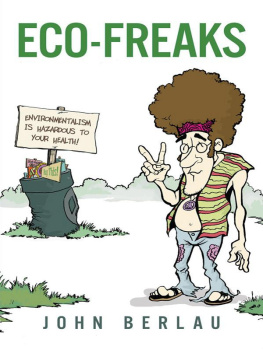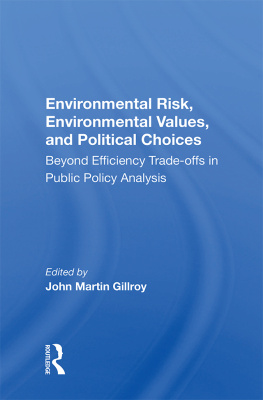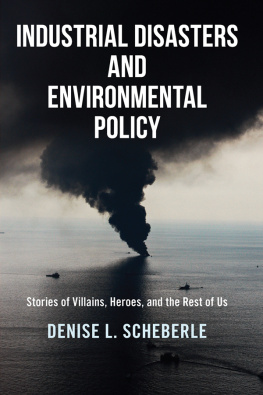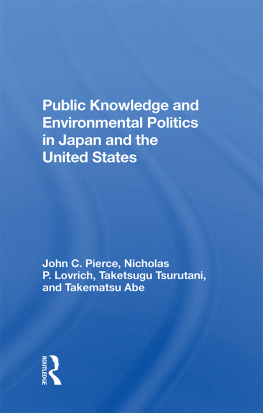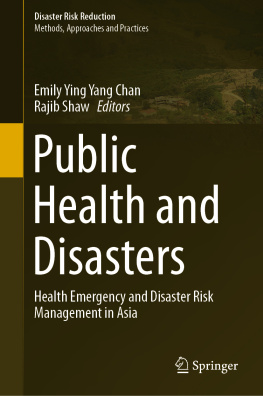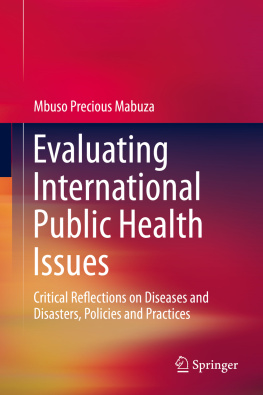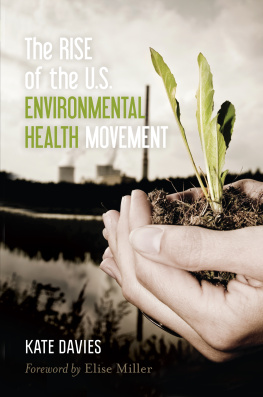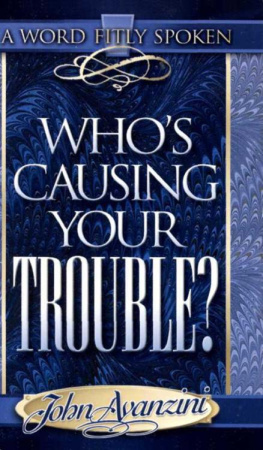John Berlau - Eco-freaks : now look whos causing environmental and public health disasters
Here you can read online John Berlau - Eco-freaks : now look whos causing environmental and public health disasters full text of the book (entire story) in english for free. Download pdf and epub, get meaning, cover and reviews about this ebook. City: Nashville, year: 2006, publisher: Nelson Current, genre: Politics. Description of the work, (preface) as well as reviews are available. Best literature library LitArk.com created for fans of good reading and offers a wide selection of genres:
Romance novel
Science fiction
Adventure
Detective
Science
History
Home and family
Prose
Art
Politics
Computer
Non-fiction
Religion
Business
Children
Humor
Choose a favorite category and find really read worthwhile books. Enjoy immersion in the world of imagination, feel the emotions of the characters or learn something new for yourself, make an fascinating discovery.
- Book:Eco-freaks : now look whos causing environmental and public health disasters
- Author:
- Publisher:Nelson Current
- Genre:
- Year:2006
- City:Nashville
- Rating:5 / 5
- Favourites:Add to favourites
- Your mark:
- 100
- 1
- 2
- 3
- 4
- 5
Eco-freaks : now look whos causing environmental and public health disasters: summary, description and annotation
We offer to read an annotation, description, summary or preface (depends on what the author of the book "Eco-freaks : now look whos causing environmental and public health disasters" wrote himself). If you haven't found the necessary information about the book — write in the comments, we will try to find it.
John Berlau: author's other books
Who wrote Eco-freaks : now look whos causing environmental and public health disasters? Find out the surname, the name of the author of the book and a list of all author's works by series.
Eco-freaks : now look whos causing environmental and public health disasters — read online for free the complete book (whole text) full work
Below is the text of the book, divided by pages. System saving the place of the last page read, allows you to conveniently read the book "Eco-freaks : now look whos causing environmental and public health disasters" online for free, without having to search again every time where you left off. Put a bookmark, and you can go to the page where you finished reading at any time.
Font size:
Interval:
Bookmark:
Reagan Was Right:
Forests Cause Pollution
FIRES AND ANIMAL ATTACKS IN THE
REWILDING OF AMERICA
Every winter, in mountain towns in south and west Texas, residents witness a thick, white haze rising from the plants. The plants emit a substance that looks like a cloud of smoke.
Every year when the plants emit this substance, many of the townsfolk get sick. They sneeze, cough, and get red, watery eyes. Those with asthma have more frequent attacks. Yet these plants stand free to spew their emissions.
Why arent these plants regulated? Did they get a pass to pollute from former Texas governor George W. Bush? And just what kind of plants are these? Are they auto plants? Power plants?
Actually theyre just plain plants. Or rather, trees. The hazy clouds residents view in Texas are clouds of pollen from the numerous mountain cedar trees that populate the Southwest. In her book, Whats in theAir?, Dr. Gillian Shepherd, fellow at the American Academy of Allergy, Asthma, and Immunology and professor of medicine at Cornell University, writes that mountain cedar pollen causes high incidence of allergies in Texas. She calls cedars the main culprit of allergies in the Texas hill country. Winter is mating season for the cedars, and during this time, pollen counts are high even miles from the trees, she writes.
Residents of the Southwest are taking action against mountain cedars, whose proper names are Ashe junipers. A Web site has sprung up called PeopleAgainstCedars.com that calls for reducing the number of cedars and for the planting of trees that emit less pollen. The city of Albuquerque, New Mexico, has banned the planting and selling of cedars, slapping a $500 fine on violators.
But mountain cedars, although some of the worst offenders, are not the only allergy-inducing culprits among trees. While most people think of outdoor allergies as coming from low-growing weeds such as ragweed, more research has shown that tree pollen can be an allergen that is much more potent. Shepherd writes that tree pollen can be fierce when it occurs. During mating season, even one robust tree could send you reeling when it spews its pollen.
REAGANS WISDOM VINDICATED:
TREES ARE A BIG PART OF POLLUTION
Their allergy effects are just one piece of a growing amount of evidence that the noble tree is not entirely benign. Our ancestors, of course, have known for hundreds of years that trees can emit some pretty powerful substances. The blue-gray haze that surrounds the Great Smoky Mountains in North Carolina and Tennessee was there long before cars or electricity. It comes from the more than 150 types of trees there.
But for decades, it has been taboo to even question the value of a standing tree. It is considered, even by some of his supporters, a gaffe for Ronald Reagan to have said in 1980 as a presidential candidate that trees are a significant factor in pollution. In the 1980 campaign, protesters would mock Reagan by dressing up as trees and holding signs saying, Chop me down before I kill again.
Yet, as with his prescience on both the evil and weakness of the Soviet empire, Reagans assertion about trees substantial contribution to pollution has also been vindicated by greater knowledge and the test of time. Further, the recent release of his handwritten radio speeches from the 1970s, in the books Reagan in His Own Hand and ReagansPath to Victory, reveal that Reagan was far more of a reader and thinker than even his closest allies realized. In discussing science policy, Reagan cited Nobel Prize-winner Norman Borlaug, whose methods of high-yield farming made India and other developing countries to grow an abundant supply of food. In his discussion of the characteristics of pollution, Reagan cited lesser known but respected scientists like John J. McKetta, a professor of chemical engineering at the University of Texas, and William Pecora, the director of the US Geological Survey from 1965 to 1971. To serious scientists now looking at overall emissions, Reagans belief stands closer to the mark than the educated opinions of elites like Mitchell.
First, lets have some context about what Reagan actually said and his views about nature. Contrary to urban myth, Reagan never asserted that trees cause pollution. He genuinely loved the outdoors, and some of his favorite moments were spent riding horses and working on his ranch northwest of Santa Barbara. In fact, he was so gentle a lover of nature that he couldnt even bear to see a rattlesnake killed. Literally. As documented by biographer Lou Cannon and others, when an infestation of rattlesnakes was discovered on the ranch, rather than ordering them killed, Reagan requested they be transported to a spot in the forest. .
But Reagan also knew of natures harshness and was grateful for the technology humans had invented. As noted in
The latter part of the statement could be considered blunt, but Reagans other speeches and writing proved how knowledgeable and farsighted he was on forestry policy. He noted that the state of California had protected for decades nearly two hundred thousand acres of the states oldest and tallest redwoodswhat he called the superlatives. But adding to that tens of thousands of acres of mostly younger trees that would be off-limits to logging was troublesome to Reagan for many reasons. He was disturbed about the thousands of loggers whose jobs would be put at risk, but he also noted in his radio speeches of the 1970s that timber companies practiced sustained yield forestry, cutting no faster than replacement growth.
Reagan was concerned that if no trees were cut, the density of the forests would create its own ecological problems. In a cabinet meeting when he was governor in 1967, Reagan asked, Has anybody ever asked the Sierra Club if they think that these trees will grow forever? Reagans question would prove to be a prescient one, as three decades later wildfires would rage in California and other states. Forests that had become dense through logging bans would catch fire and burn for thousands of acres, killing wildlife and harming humans. We will discuss this later in the chapter.
Getting back to air pollution, what Reagan said was that we need careful study before putting costly regulations on cars or factories that could decrease our standard of living, because these rules may not even have the environmental results anticipated. This is because the effects of human activity are often small potatoes compared to the mighty forces of nature. Reagan then said, Approximately 80 percent of our air pollution stems from hydrocarbons released by vegetation. He made similar statements that simply referred to technical facts about natures chemical elements.
Even astute observers at the time knew Reagan was right that natural forces had some impact on pollution. The late syndicated columnist Warren T. Brookes wrote that Reagans assertion that smog was caused in some measure by gases from trees and vegetation was no joke.
Specifically regarding Reagans reference to hydrocarbons, a key ingredient of smog, it had long been known that they are produced by trees as well as cars. But scientists had assumed that in cities, cars and trucks generated much more hydrocarbon pollution than trees, observed the Boston Globe. But something was wrong with this picture. Because of the catalytic converter, as discussed in the last chapter, hydrocarbons and other pollutants had been eliminated from the tailpipe output of cars made since 1975. Yet smog did not decrease in some cities such as Atlanta.
Atlanta has long been full of gas-spewing Georgia pines. So in 1988, Georgia Institute of Technology William Chameides published research in Science magazine that vindicated Reagan on the particulars as well as the general point of his argument. Arriving at his conclusion with sophisticated measurements of satellite data, Chameides told the
Next pageFont size:
Interval:
Bookmark:
Similar books «Eco-freaks : now look whos causing environmental and public health disasters»
Look at similar books to Eco-freaks : now look whos causing environmental and public health disasters. We have selected literature similar in name and meaning in the hope of providing readers with more options to find new, interesting, not yet read works.
Discussion, reviews of the book Eco-freaks : now look whos causing environmental and public health disasters and just readers' own opinions. Leave your comments, write what you think about the work, its meaning or the main characters. Specify what exactly you liked and what you didn't like, and why you think so.

